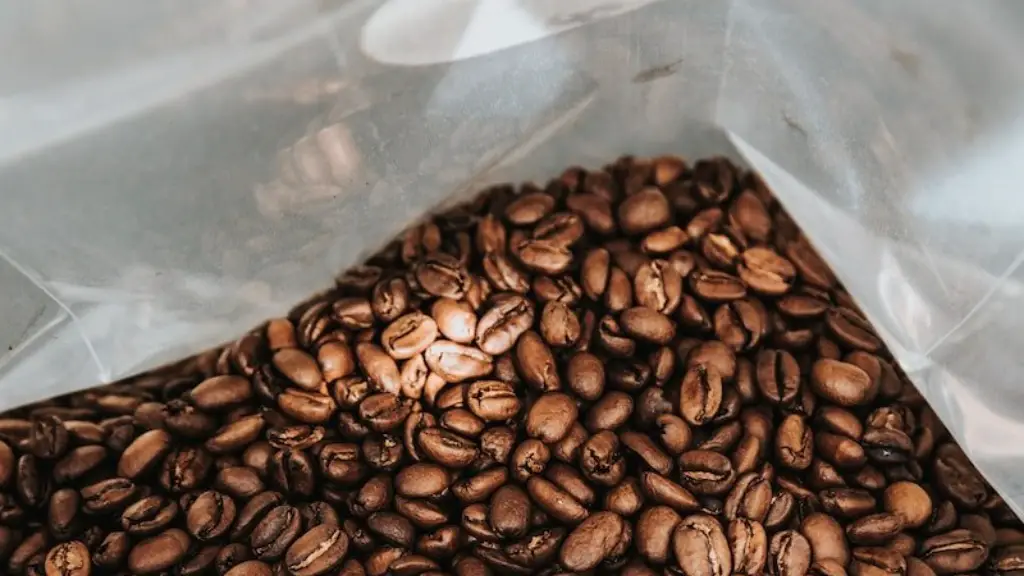It’s widely accepted that coffee is a useful pick-me-up and a great source of caffeine for many people. But how much coffee you should drink, and how fast you should drink it, is a matter of debate. While some individuals may benefit from a quicker caffeine boost, others may find it beneficial to take their time with their daily cup of coffee.
To understand the answer to this question, it is important to consider the different effects of caffeine on the body and how drinking coffee too quickly can be harmful.
Caffeine is a natural stimulant that acts as a central nervous system stimulant. It increases alertness, improves concentration, and boosts energy levels. Drinking coffee too fast, however, can give you a false sense of energy, because caffeine can take up to thirty minutes to enter your bloodstream, depending on how quickly you consume it. Drinking too much and too quickly can lead to unpleasant side effects, such as headaches, nausea, restlessness, anxiety, and even insomnia.
Some experts suggest that coffee should be consumed slowly and in moderation to get the most benefit from it. According to nutritionists, drinking a cup of coffee at a slower pace allows the body to adjust to the caffeine more gradually, which can reduce the chances of experiencing side effects such as jitters and agitation.
Slowly drinking coffee can also be helpful for individuals who are sensitive to caffeine. Drinking coffee too quickly can be detrimental since their body won’t have enough time to process the caffeine. Drinking slower can help the body better metabolize the caffeine, thus avoiding any unpleasant side effects.
However, there are benefits to drinking coffee fast too. Studies have found that drinking a cup of coffee quickly can reduce total caffeine consumption. This is because the caffeine reaches the bloodstream faster and is more quickly eliminated than when consumed over an extended period of time. Therefore, if you’re looking for a quick pick-me-up, drinking coffee quickly may be beneficial.
It’s also important to note that how much coffee you should drink depends on your individual tolerance to caffeine. Some people are more sensitive to the stimulant effects of caffeine than others, so it’s important to consider your personal tolerance level when deciding how fast to drink coffee.
Stimulant Effects
It’s important to note that the stimulant effects of caffeine can vary from person to person. For some people, the effects may not be felt until a few hours after consumption, while for others, the effects may be felt immediately. Therefore, it’s important to consider your individual response to caffeine when deciding how fast you should drink coffee.
Due to the stimulant effects of caffeine, it’s important to practice moderation with your coffee consumption. While drinking too little can prevent you from experiencing the desired benefits, drinking too much can lead to restlessness, headache, and insomnia. Thus, it’s important to be mindful of your daily caffeine intake and adjust your consumption accordingly.
It’s also important to note that the amount of caffeine in a cup of coffee can vary significantly depending on the roast and brewing method. Generally speaking, a cup of strong, black coffee will contain more caffeine than a cup of milder, light roast coffee.
In short, when it comes to how fast you should drink coffee, the answer is ultimately up to you. While some individuals may benefit from drinking their daily cup of coffee quickly, others may find that slow and steady wins the race. Whatever your preference, it’s important to practice moderation and be mindful of how much caffeine you’re consuming.
Caffeine Overconsumption
Caffeine overconsumption is a real issue facing many people around the world. A study carried out by the American Heart Association in 2017 showed that 34% of adults between the ages of 20 and 39 consume more than 400mg of caffeine per day, while another 15% consume more than 600mg per day.
Overconsumption of caffeine can have a number of adverse effects, including frequent headaches, insomnia, irritability, and restlessness. If caffeine overconsumption is not addressed, these symptoms can become more severe and can lead to fatigue, anxiety, and depression.
Therefore, it is important to be mindful of your daily caffeine intake and be aware of the potential risks of overconsumption. If you find that you’re consuming more than 400mg of caffeine per day, it may be a good idea to cut back or switch to decaffeinated coffee.
It’s also important to note that the adverse effects of caffeine overconsumption are not just limited to physical health. Studies have shown that individuals who overconsume caffeine may be at a higher risk of cognitive decline and mental health issues, such as depression and anxiety.
Therefore, it’s important to practice moderation when consuming caffeine and be mindful of the potential health risks. If you’re concerned about your caffeine consumption, it may be a good idea to talk to your doctor or a nutritionist for advice on how to manage your caffeine intake.
Addiction
It’s also important to note that caffeine consumption can lead to addiction. Caffeine is a mild stimulant and can have a euphoric effect on the user. This can lead to physical dependence, as the brain and body begin to rely on the substance for the desired effect.
Continued caffeine consumption can lead to the development of tolerance, which means that the user needs to consume larger amounts of caffeine in order to experience the same effects. This can lead to addiction and can be difficult to overcome.
Therefore, it’s important to practice moderation with your caffeine consumption and be aware of the potential risks of dependence. If you find that you’re consuming more caffeine than you’d like, it may be a good idea to talk to your doctor or a nutritionist for advice on how to manage your caffeine intake.
If you’re concerned about the potential risks of addiction, it may be a good idea to switch to decaffeinated coffee. Decaffeinated coffee still contains some caffeine, but in much smaller amounts than regular coffee.
Ultimately, when it comes to drinking coffee, it’s important to be mindful of your individual tolerance level and practice moderation. How quickly you should drink coffee ultimately comes down to personal preference, but it’s important to be aware of the potential risks of overconsumption and addiction.
Alternative Sources Of Caffeine
If you’re looking for a lower-caffeine alternative to coffee, there are several options available. Tea, for instance, contains far less caffeine than coffee, and many varieties are decaffeinated, such as herbal and green teas.
Energy drinks are another popular option, though they tend to contain higher levels of caffeine than coffee. It’s important to note that energy drinks can also be addictive, so it’s important to be mindful of your daily intake.
If you’re looking for a natural, lower-caffeine alternative, cacao is a fantastic option. Cacao is a powerful superfood that contains small amounts of caffeine and also has mood-lifting and anti-anxiety effects.
Finally, if you’re looking for something even more natural, there are certain herbs, such as guarana and ginseng, that can provide a mild energy boost and are generally considered safe to consume in small doses.
Conclusion
In conclusion, how fast you should drink coffee ultimately comes down to personal preference and individual tolerance level. While some individuals may benefit from drinking coffee quickly, others may find that slowly sipping their daily cup of coffee is more beneficial. It’s important to be mindful of the potential risks of overconsumption and addiction and to practice moderation when deciding how fast to drink your coffee.





